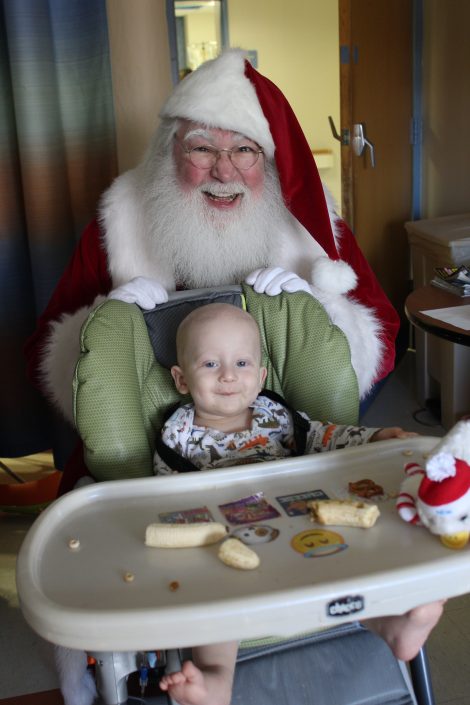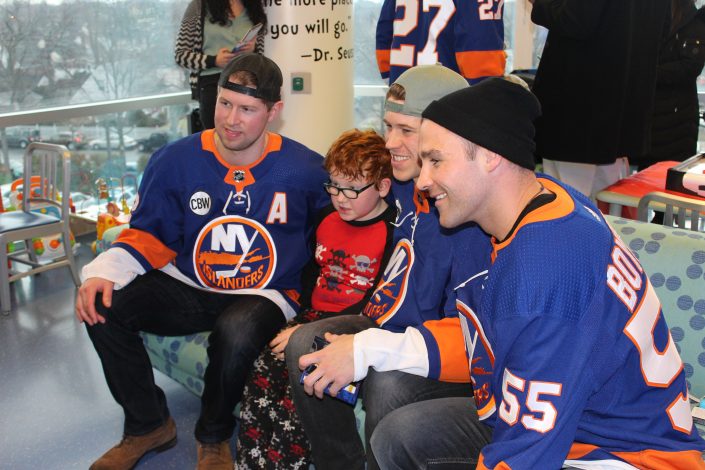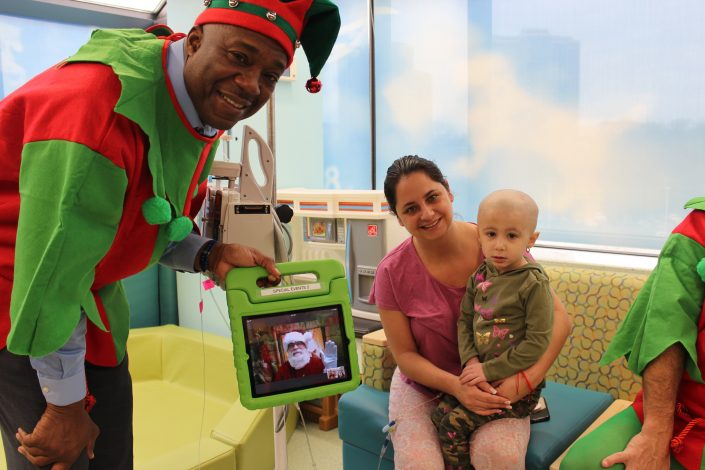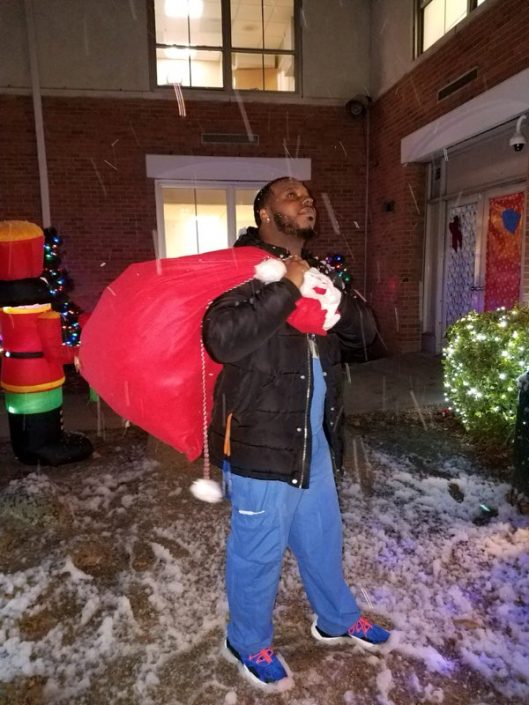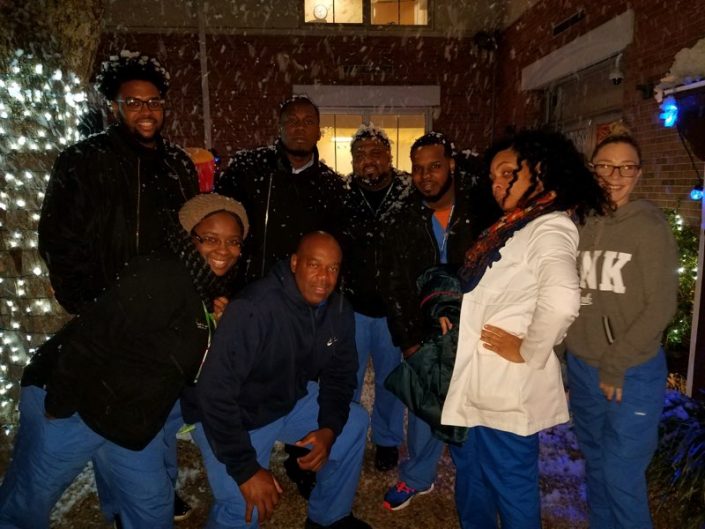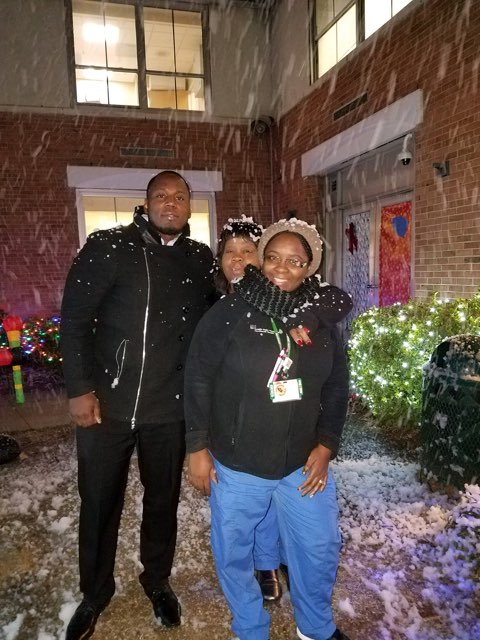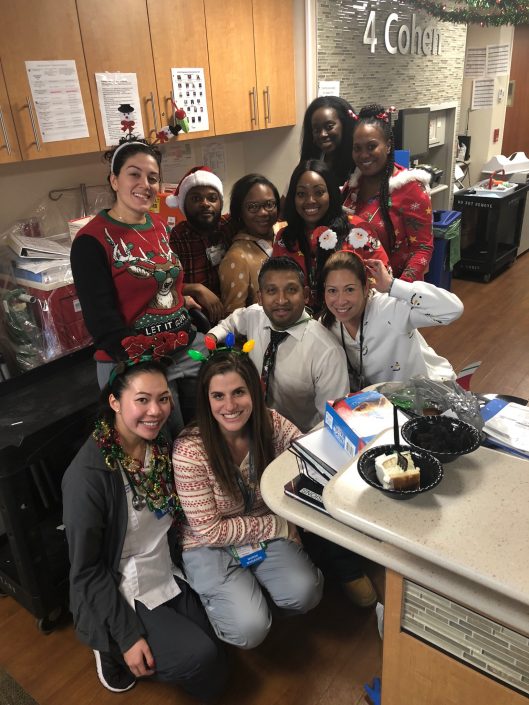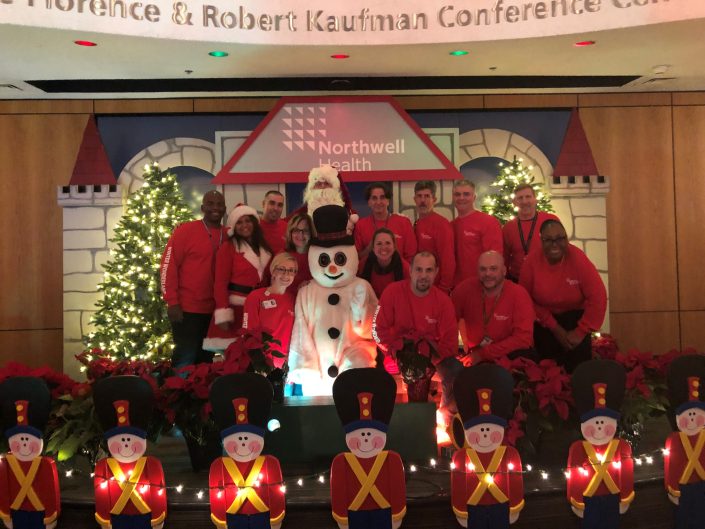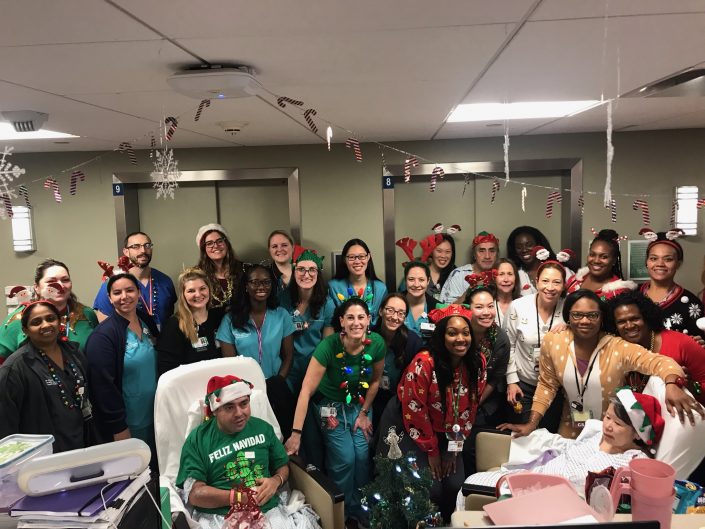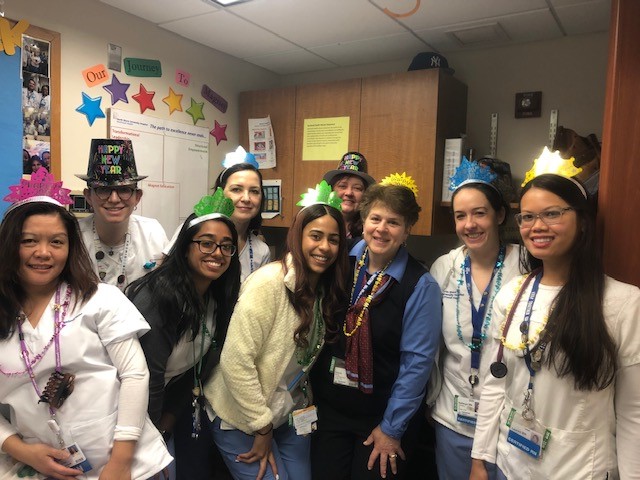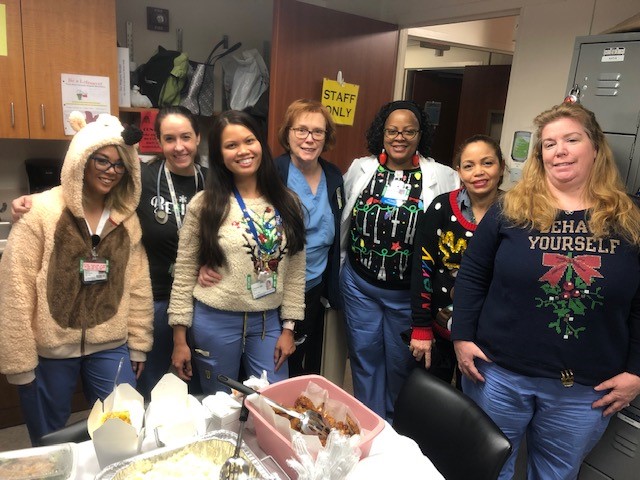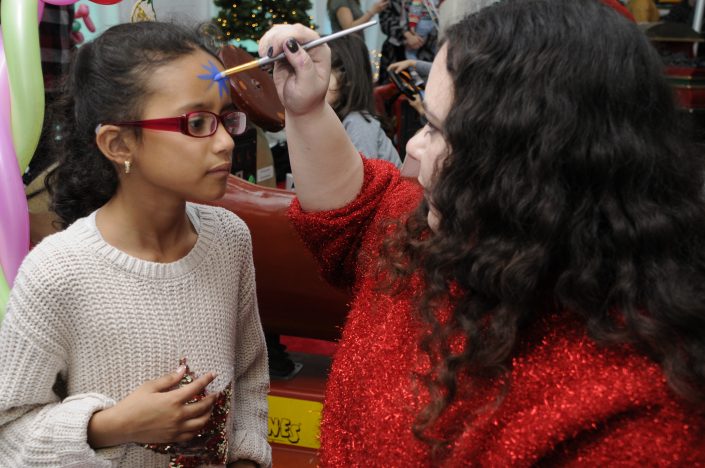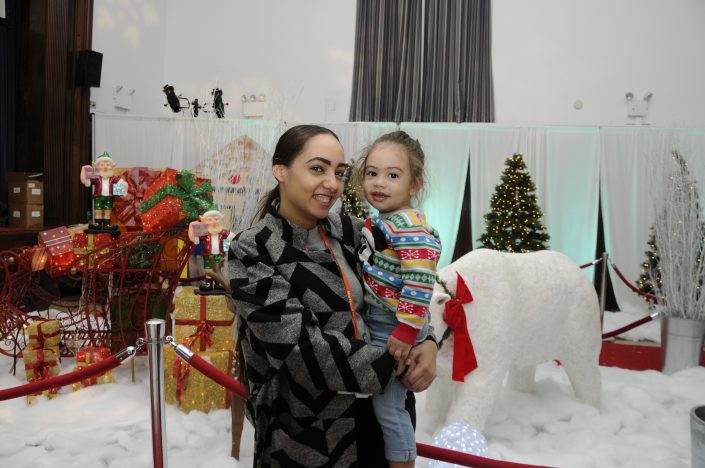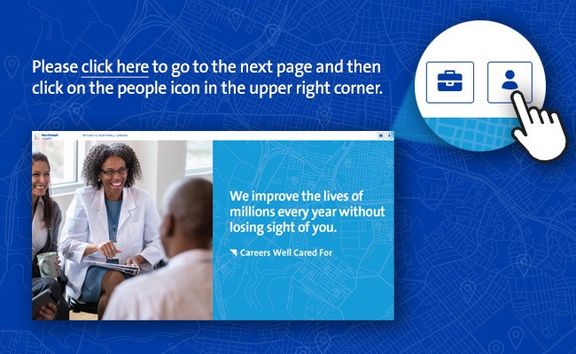Archive for month: January, 2019
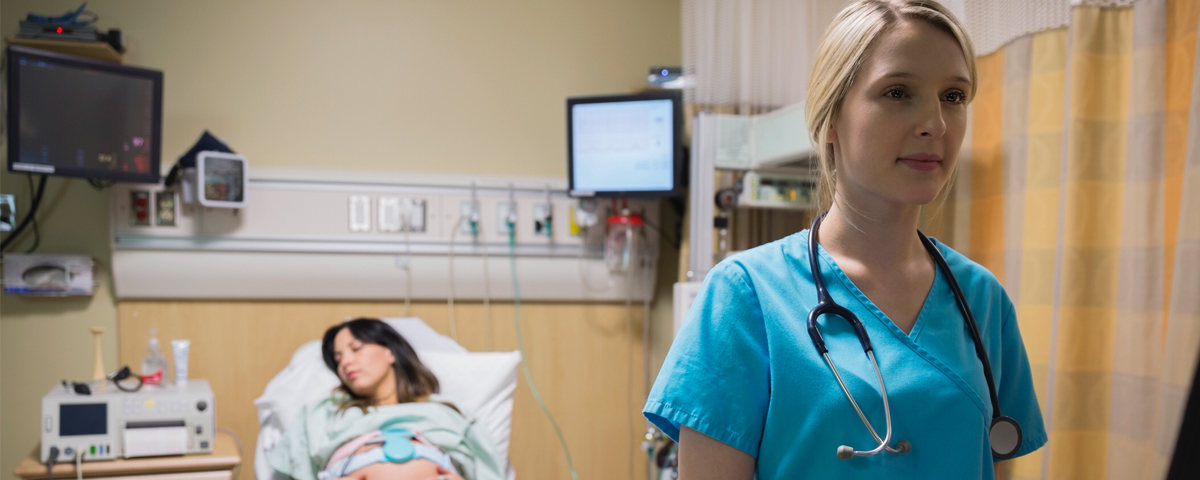
Northwell Ventures Presents: Neteera makes checking vital signs easier for patients and professionals
As a known industry leader and innovator, Northwell Ventures is always looking for unique and noteworthy ways to deliver better healthcare to our patients while making care easier for our staff. The most recent example of that kind of innovative thinking can be found in our latest collaboration with Neteera Technologies.
Neteera is a startup looking to revolutionize the way we obtain vital signs. Specifically, Neteera has pioneered a new sensing technology, a chip based on high-resolution, high-frequency radar which enable a previously unimaginable understanding of our environment in a reliable, efficient and safe manner. Think of it as a connection between the analog and digital ecosystems. This exciting technology has even been road tested in driverless cars and to aide NASA Astronauts.
The chip can be used almost anywhere and can be placed in a patient’s chair or bed to monitor their vital signs wirelessly without any sensors touching the body. This allows for consistent, reliable monitoring of patients so nurses won’t have to check on them as often. Even more exciting, patients won’t know that they are having their vital signs checked, so they can get more sleep which is an essential element in their healing process. This technology is currently being tested in a Northwell Health sleep study to prove its effectiveness in healthcare, led by Northwell Health clinician Dr. Greenberg.
Though this work is happening at Northwell Health, the impact will be global. Northwell Ventures’ interest in Neteera was sparked by our partnership with the Israeli Innovation Arm and with the State of Israel. After getting the information, “we had Northwell’s respective clinical and operations team vet and try out the products/technology to see if we will pilot or deploy them for the benefit of our patients,” said Todd Goldstein PhD, Director, 3D Printing & Innovation and Instructor in Orthopedic Research Lab at the Feinstein Institute for Medical Research. Neteera’s global roots are further proof of Northwell Health’s Truly Innovative mission to gain and share innovative and disruptive technology to benefit our patients and patients all over the world.
Learn more about Northwell Ventures’ other initiatives here.
This post is part of a series focusing on the Truly Innovative concepts and technologies brought to life by Northwell Ventures. We invest in companies that will generate strategic returns- creating products that meet healthcare needs now and in the future. Northwell Ventures showcases our investment in unique and noteworthy innovations that will impact our work and the health of all.
Share this entry
Subscribe to our blogs
Stay up to date with stories you want to know more about right to your email inbox.
Newsletter
Subscribe to our blogs
Stay up to date with stories you want to know more about right to your email inbox.
Newsletter
Recent Posts
- Celebrating Black History Month
- Two paths to perfusion: Meet Danielle and Robert
- Explore two different career paths in respiratory care at Northwell Health
- Discover Kelly’s career journey as a nurse manager of perioperative services at Northwell Health’s North Shore University Hospital
- From specialty pharmacist to operations manager: Sherry’s career path at Northwell’s VIVOHealth Pharmacy
Categories
- Academia and Research
- Administrative Support
- Advance Clinical Providers
- Business
- Career Advice
- Career Paths
- Clinical Care
- Clinical Laboratory Science
- Clinical Support
- Culinary and Hospitality
- Culture
- EVS
- Featured Articles
- General Management
- Human Resources
- Imaging
- Inclusion and Belonging
- Information Technology
- Mentorship
- Nursing
- Operations
- Patient and Customer Experience
- Pharmacy
- Rehabilitation Services
- Revenue Cycle
- Social Services
- Students and Internships
- Veterans
- Wellness & Benefits
Archives
- February 2026
- January 2026
- December 2025
- November 2025
- October 2025
- September 2025
- August 2025
- July 2025
- June 2025
- May 2025
- April 2025
- March 2025
- February 2025
- January 2025
- December 2024
- November 2024
- October 2024
- September 2024
- August 2024
- July 2024
- June 2024
- May 2024
- April 2024
- March 2024
- February 2024
- January 2024
- December 2023
- November 2023
- October 2023
- September 2023
- August 2023
- July 2023
- June 2023
- May 2023
- April 2023
- March 2023
- February 2023
- January 2023
- December 2022
- November 2022
- October 2022
- September 2022
- August 2022
- July 2022
- June 2022
- May 2022
- April 2022
- March 2022
- February 2022
- January 2022
- December 2021
- November 2021
- October 2021
- September 2021
- August 2021
- July 2021
- June 2021
- May 2021
- April 2021
- March 2021
- February 2021
- January 2021
- December 2020
- November 2020
- October 2020
- September 2020
- August 2020
- July 2020
- June 2020
- May 2020
- April 2020
- March 2020
- February 2020
- January 2020
- December 2019
- November 2019
- October 2019
- September 2019
- August 2019
- July 2019
- June 2019
- May 2019
- April 2019
- March 2019
- February 2019
- January 2019
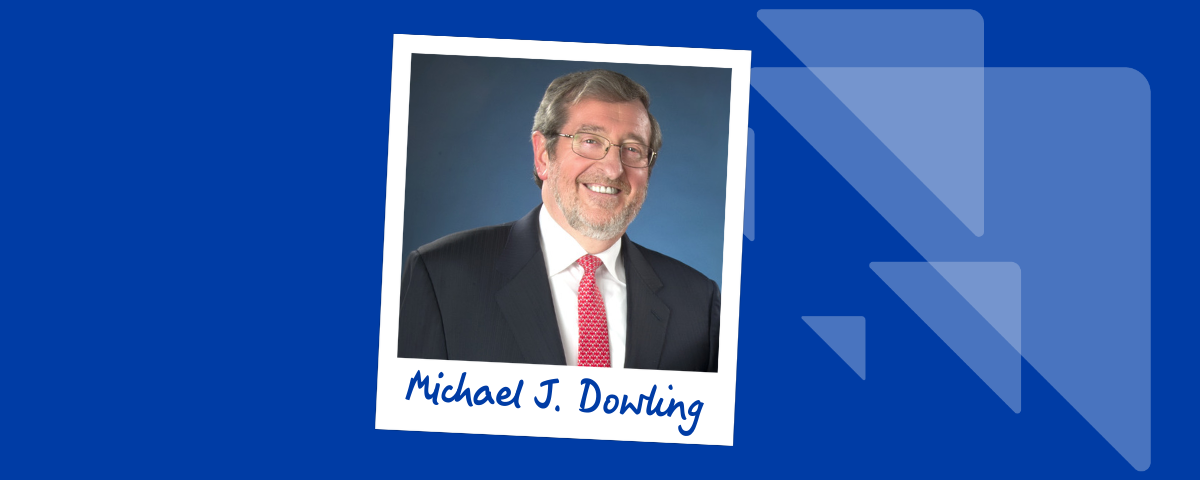
An Appointment With: Michael J. Dowling, Northwell Health President and CEO
What does the year ahead hold for Northwell Health?
As we kick off 2019, it’s important to understand that the business of health care has never been more challenging, from navigating state and federal regulation to ever-increasing competition and integrating emerging technologies. These demands make the mission of delivering world-class health care to the communities we serve a test of resolve that requires discipline and focus from everyone at Northwell Health, beginning with the frontline staff on up.
That said, I believe we’re in a good place. There are phenomenal things going on. Very positive things will continue to happen, so long as we continue to adapt and be creative. We are the number one provider of care in New York, with a market share of nearly 30 percent – almost double our next-closest competitor. That’s a credit to the staff and leadership throughout the health system. You can only succeed if you have great passion and a dedicated staff. Because we have both, I’m bullish and optimistic about our future.
How will Northwell meet these challenges?
We will meet these challenges by being innovative, providing the best service and delivering the best quality.
Fundraising and philanthropy need to be an important component for the health system to thrive. In the past, philanthropy accounted for one-third of the funding required for any capital expansion project. Debt and operations made up the rest. That’s no longer the case.
Thankfully, the launch of the health system’s “Outpacing the Impossible” fundraising campaign in October and its $1 billion goal puts us on track to fund the projects that will move Northwell forward over the next decade. Philanthropy is increasingly important, especially for a nonprofit operating on a one percent margin. Our greatest contributors remain the employees. No gift is too small.
Can you explain how Northwell plans to continue to grow?
Our focus is targeted growth. We need to make investments in infrastructure, technology and clinical excellence, including new physicians along with new capabilities. There needs to be an emphasis on building alternative funding streams to offset the continuing reduction in insurance reimbursement from Medicare, Medicaid and commercial payers, as well as a focus on efficiency and productivity.
Give an example of why investing in capital projects matters?
We suffer from a legacy problem. The health system right now encompasses 17.8 million square feet of real estate with more than half accounting for the hospitals themselves. Most of our hospitals date to before 1950, which means when you try to modernize, you’re doing it in a space that was originally built 70 years ago or even longer.
We currently spend nearly $500 million to maintain our infrastructure with no return on investment – that’s just to maintain our facilities. That money is built into our budget every year. None of the new technologies we take for granted existed when these hospitals were constructed. Obviously, the expectations that existed back then are different than today. The leaders back then who planned these projects couldn’t possibly have anticipated the current state of health care delivery. That’s why we have projects in various stages of completion happening at facilities throughout the health system. Modernization is expensive but necessary to our survival.
Why are partnerships in Brooklyn and with Nassau University Medical Center important?
It’s our civic responsibility to help communities where a lack of access and health disparities exist. These efforts may have any financial benefit to us, but it’s the right thing to do. It’s easy to be successful by being selective and only investing in programs and services that make money, but our mission is to improve the health of our communities, especially those where there’s a high proportion of people at risk for chronic disease and other socio-economic factors that contribute to poor health.
For example, we’re currently lending our support in Brooklyn to help Brookdale, Interfaith, Kingsbrook and Wyckoff hospitals, as well as providing management and operational expertise to Nassau University Medical Center. These are all financially distressed hospitals that care for people in medically underserved communities. We have an obligation to run our own health system well and to be successful as an organization. But we also have an obligation to use our resources to help others who are less fortunate. We can’t walk away from difficult challenges. Other health systems do that. That’s not us. Our mission is imbedded in our culture.
Share this entry
Subscribe to our blogs
Stay up to date with stories you want to know more about right to your email inbox.
Newsletter
Subscribe to our blogs
Stay up to date with stories you want to know more about right to your email inbox.
Newsletter
Recent Posts
- Celebrating Black History Month
- Two paths to perfusion: Meet Danielle and Robert
- Explore two different career paths in respiratory care at Northwell Health
- Discover Kelly’s career journey as a nurse manager of perioperative services at Northwell Health’s North Shore University Hospital
- From specialty pharmacist to operations manager: Sherry’s career path at Northwell’s VIVOHealth Pharmacy
Categories
- Academia and Research
- Administrative Support
- Advance Clinical Providers
- Business
- Career Advice
- Career Paths
- Clinical Care
- Clinical Laboratory Science
- Clinical Support
- Culinary and Hospitality
- Culture
- EVS
- Featured Articles
- General Management
- Human Resources
- Imaging
- Inclusion and Belonging
- Information Technology
- Mentorship
- Nursing
- Operations
- Patient and Customer Experience
- Pharmacy
- Rehabilitation Services
- Revenue Cycle
- Social Services
- Students and Internships
- Veterans
- Wellness & Benefits
Archives
- February 2026
- January 2026
- December 2025
- November 2025
- October 2025
- September 2025
- August 2025
- July 2025
- June 2025
- May 2025
- April 2025
- March 2025
- February 2025
- January 2025
- December 2024
- November 2024
- October 2024
- September 2024
- August 2024
- July 2024
- June 2024
- May 2024
- April 2024
- March 2024
- February 2024
- January 2024
- December 2023
- November 2023
- October 2023
- September 2023
- August 2023
- July 2023
- June 2023
- May 2023
- April 2023
- March 2023
- February 2023
- January 2023
- December 2022
- November 2022
- October 2022
- September 2022
- August 2022
- July 2022
- June 2022
- May 2022
- April 2022
- March 2022
- February 2022
- January 2022
- December 2021
- November 2021
- October 2021
- September 2021
- August 2021
- July 2021
- June 2021
- May 2021
- April 2021
- March 2021
- February 2021
- January 2021
- December 2020
- November 2020
- October 2020
- September 2020
- August 2020
- July 2020
- June 2020
- May 2020
- April 2020
- March 2020
- February 2020
- January 2020
- December 2019
- November 2019
- October 2019
- September 2019
- August 2019
- July 2019
- June 2019
- May 2019
- April 2019
- March 2019
- February 2019
- January 2019
Archives
- February 2026
- January 2026
- December 2025
- November 2025
- October 2025
- September 2025
- August 2025
- July 2025
- June 2025
- May 2025
- April 2025
- March 2025
- February 2025
- January 2025
- December 2024
- November 2024
- October 2024
- September 2024
- August 2024
- July 2024
- June 2024
- May 2024
- April 2024
- March 2024
- February 2024
- January 2024
- December 2023
- November 2023
- October 2023
- September 2023
- August 2023
- July 2023
- June 2023
- May 2023
- April 2023
- March 2023
- February 2023
- January 2023
- December 2022
- November 2022
- October 2022
- September 2022
- August 2022
- July 2022
- June 2022
- May 2022
- April 2022
- March 2022
- February 2022
- January 2022
- December 2021
- November 2021
- October 2021
- September 2021
- August 2021
- July 2021
- June 2021
- May 2021
- April 2021
- March 2021
- February 2021
- January 2021
- December 2020
- November 2020
- October 2020
- September 2020
- August 2020
- July 2020
- June 2020
- May 2020
- April 2020
- March 2020
- February 2020
- January 2020
- December 2019
- November 2019
- October 2019
- September 2019
- August 2019
- July 2019
- June 2019
- May 2019
- April 2019
- March 2019
- February 2019
- January 2019
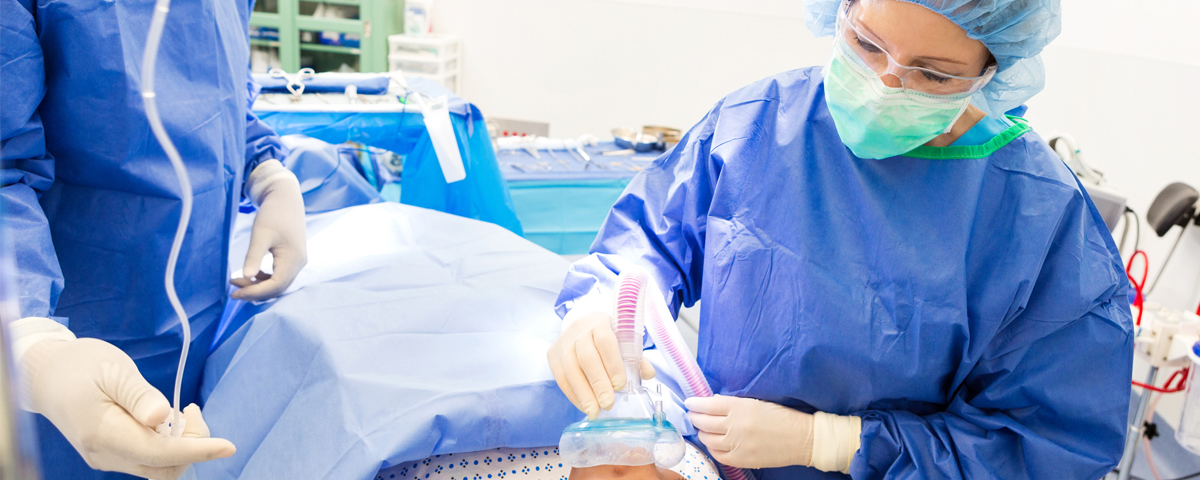
CRNAs go above and beyond while their patients are under. Learn more in Northwell Health’s CRNA Fact Sheet:
CRNAs are invaluable members of our patient care teams. Every year, they safely administer more than 45 million anesthetics to patients in the U.S. through a safe and cost-effective way. Explore this fact sheet and learn more about this noble profession:
What is a CRNA?
CRNAs are advanced practice nurses who’ve earned the credential of Certified Registered Nurse Anesthetist after passing a certification exam. They have over 2000 hours of advanced clinical training. CRNAs work with healthcare providers, ranging from surgeons and anesthesiologists to dentists and podiatrists and administer anesthesia to all surgical cases.
Where do CRNAs practice?
Wherever anesthesia is being delivered, CRNAs are there, caring for patients. Inside private practices, surgical suites, specialty offices, Obstetrics and U.S. military sites, CRNAs are caring for millions of people around the world each day.
What makes CRNAs so important to health care?
CRNAs are also a cost-effective alternative to anesthesiologists, making a huge difference for patients and insurance companies fighting against rising healthcare costs. CRNAs aren’t just important to save on healthcare costs, in many rural communities of the U.S., they’re vital as they are the primary anesthesia care provider. In many states, nearly 100% of rural hospitals rely on CRNAs as the sole providers for anesthesia care, meaning that without CRNAs, surgeries would be impossible.
What education is required to become a CRNA?
The minimum education and experience required to become a CRNA include:
● Baccalaureate or graduate degree in nursing or other applicable major
● Valid registered professional nursing license and/or APRN
● Minimum of one-year full-time work experience, or its part-time equivalent, as a registered nurse in a critical care setting within the United States, its territories, or a U.S. military hospital outside of the United States.
● Graduation with a minimum of a master’s degree from a nurse anesthesia educational program accredited by the Council on Accreditation of Nurse Anesthesia Educational Programs
What is a CRNA program like?
Depending on the university, nurse anesthesia programs can vary from 24-51 months. Most programs have gone or are in the process of offering the DNP as the entry to practice terminal degree. After 7-8.5 years of study, professionals leave fully prepared for their position, graduating with immense clinical experience that averages to 9,369 clinical hours. All of this work culminates in a master’s or doctoral degree from a program that’s accredited by the Council of Accreditation of Nurse Anesthesia Educational Programs.
As an acknowledgment of CRNAs’ growing importance and educational expectations, by 2025 all CRNAs will receive a doctoral degree. Once they receive a degree, a CRNA graduate they must also pass the National Certification Examination before they can start practicing on their own.
What are the career opportunities for CRNAs?
CRNAs are highly regarded advanced practice professionals who enjoy real autonomy and incredible professional respect in their roles. Since they’re are solely responsible for the anesthetic care of their patients, their compensation reflects that immense responsibility. Beyond their degrees, some CRNAs utilize their fellowships to specialize in areas of anesthesiology like chronic pain management.
How do I become recertified as a CRNA?
We’re excited that you want to become recertified as a CRNA! You can enroll in the Continued Professional Certification Program, an eight-year program that’s dividing into two four-year cycles. Administered by the National Board of Certification and Recertification for Nurse Anesthetists, the CPC is based on four components: traditional continuing education, professional development, core content modules, and a comprehensive exam.
![]() Are you Made for a career as a CRNA? Learn more about CRNA opportunities at Northwell Health.
Are you Made for a career as a CRNA? Learn more about CRNA opportunities at Northwell Health.
Share this entry
Subscribe to our blogs
Stay up to date with stories you want to know more about right to your email inbox.
Newsletter
Subscribe to our blogs
Stay up to date with stories you want to know more about right to your email inbox.
Newsletter
Recent Posts
- Celebrating Black History Month
- Two paths to perfusion: Meet Danielle and Robert
- Explore two different career paths in respiratory care at Northwell Health
- Discover Kelly’s career journey as a nurse manager of perioperative services at Northwell Health’s North Shore University Hospital
- From specialty pharmacist to operations manager: Sherry’s career path at Northwell’s VIVOHealth Pharmacy
Categories
- Academia and Research
- Administrative Support
- Advance Clinical Providers
- Business
- Career Advice
- Career Paths
- Clinical Care
- Clinical Laboratory Science
- Clinical Support
- Culinary and Hospitality
- Culture
- EVS
- Featured Articles
- General Management
- Human Resources
- Imaging
- Inclusion and Belonging
- Information Technology
- Mentorship
- Nursing
- Operations
- Patient and Customer Experience
- Pharmacy
- Rehabilitation Services
- Revenue Cycle
- Social Services
- Students and Internships
- Veterans
- Wellness & Benefits
Archives
- February 2026
- January 2026
- December 2025
- November 2025
- October 2025
- September 2025
- August 2025
- July 2025
- June 2025
- May 2025
- April 2025
- March 2025
- February 2025
- January 2025
- December 2024
- November 2024
- October 2024
- September 2024
- August 2024
- July 2024
- June 2024
- May 2024
- April 2024
- March 2024
- February 2024
- January 2024
- December 2023
- November 2023
- October 2023
- September 2023
- August 2023
- July 2023
- June 2023
- May 2023
- April 2023
- March 2023
- February 2023
- January 2023
- December 2022
- November 2022
- October 2022
- September 2022
- August 2022
- July 2022
- June 2022
- May 2022
- April 2022
- March 2022
- February 2022
- January 2022
- December 2021
- November 2021
- October 2021
- September 2021
- August 2021
- July 2021
- June 2021
- May 2021
- April 2021
- March 2021
- February 2021
- January 2021
- December 2020
- November 2020
- October 2020
- September 2020
- August 2020
- July 2020
- June 2020
- May 2020
- April 2020
- March 2020
- February 2020
- January 2020
- December 2019
- November 2019
- October 2019
- September 2019
- August 2019
- July 2019
- June 2019
- May 2019
- April 2019
- March 2019
- February 2019
- January 2019
Archives
- February 2026
- January 2026
- December 2025
- November 2025
- October 2025
- September 2025
- August 2025
- July 2025
- June 2025
- May 2025
- April 2025
- March 2025
- February 2025
- January 2025
- December 2024
- November 2024
- October 2024
- September 2024
- August 2024
- July 2024
- June 2024
- May 2024
- April 2024
- March 2024
- February 2024
- January 2024
- December 2023
- November 2023
- October 2023
- September 2023
- August 2023
- July 2023
- June 2023
- May 2023
- April 2023
- March 2023
- February 2023
- January 2023
- December 2022
- November 2022
- October 2022
- September 2022
- August 2022
- July 2022
- June 2022
- May 2022
- April 2022
- March 2022
- February 2022
- January 2022
- December 2021
- November 2021
- October 2021
- September 2021
- August 2021
- July 2021
- June 2021
- May 2021
- April 2021
- March 2021
- February 2021
- January 2021
- December 2020
- November 2020
- October 2020
- September 2020
- August 2020
- July 2020
- June 2020
- May 2020
- April 2020
- March 2020
- February 2020
- January 2020
- December 2019
- November 2019
- October 2019
- September 2019
- August 2019
- July 2019
- June 2019
- May 2019
- April 2019
- March 2019
- February 2019
- January 2019
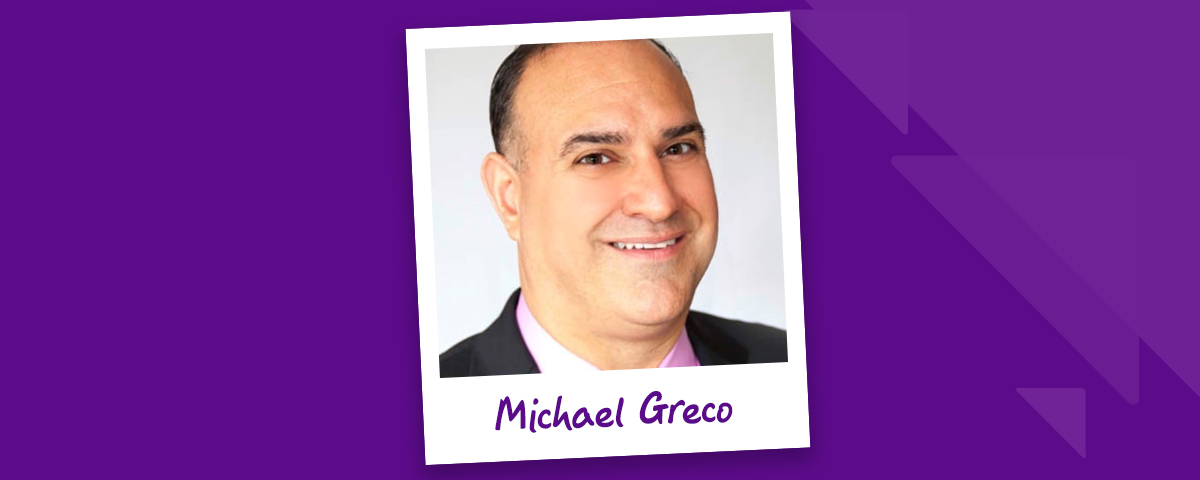
We’re celebrating CRNA Week! Meet Michael Greco who is spearheading big changes for CRNAs at Northwell Health
It’s Certified Registered Nurse Anesthetists (CRNA) week and at Northwell Health, we’re celebrating all week long. CRNAs are advanced practice registered nurses who provide anesthesia care to patients. These hardworking advanced practice nurses are responsible for patient safety before, during, and after anesthesia.
To start off our celebrations, we spoke with Michael Greco, Ph.D., DNP, CRNA who is the director of the Nurse Anesthesia Services at Northwell Health. It’s noble work that he feels privileged to be a part of, “my favorite part of being a CRNA is that there’s no other profession where you’re going to meet your patient for the first time and that patient is going to give you all of their trust to maintain their care and keep them comfortable when they’re at that most vulnerable. I am lucky to get to develop that instant relationship, to make the patient and their family feel comfortable, and deliver the high-quality care that they deserve.”
Through Northwell’s collaboration with Columbia University, Michael was introduced to Northwell and then offered the opportunity to lead and expand the nurse anesthesia practice and direct the Northwell Health nurse anesthesia program as it is being developed. The position was directly in line with his professional values to develop his students, staff and himself professionally and clinically. Now, he’s pushing the anesthetics services and agenda even further. Michael says, “I’m a firm believer of risk-taking, so I took a risk to leave a job I was comfortable in because I saw that there was an opportunity to further my professional mission.”
Working toward a mission is a sentiment Michael learned in his over 10 years of service as a nurse anesthetist in the military. He served in Iraq, Italy, Germany, and throughout the continental US including West Point Military Academy. Michael says his military service was invaluable to his growth, “No school, no seminar, and no course could equip me with the skills that I gained from serving in the United States Army.” Now, he’s using those skills to lead four CRNA teams, two in Staten Island and two in Manhattan.
Leading four teams is a lot of work, and Michael’s dedication to the various responsibilities in his role makes him a truly inspiring asset to Northwell Health. As a director of the Nurse Anesthesia Services, he oversees the education of CRNAs, holds training seminars, accredited by the national association of Nurse Anesthesia, to help educate staff and grow their knowledge on certain anesthesia principles. He supervises CRNAs practicing within their scope and ensures standards are met. Michael works closely to make sure operating rooms have enough coverage to run fluidly and no cases are delayed. He performs clinical appraisals and hires CRNAs. He’s responsible for employee oversight and is in constant communication with the staff in regards to compliance and best practice, as well as any employee issues that may arise. Simply, Michael is a huge asset to CRNAs at Northwell Health.
Michael is working to develop a robust CRNA program and increase the numbers of staff while also building partnerships with other schools like Rutgers University and Columbia University to bring students into the operating room and train the next generation of CRNAs. “I live by the standard that if I’m not developing my staff, I’m not doing my job. A career in Nurse Anesthesia requires a commitment to life-long learning, each and every staff member is on a continuous journey to pursue education – if not to return to school the journey is to read and appraise the literature with a scholarly mindset. This allows my staff to deliver the most current and evidenced supported care in their practice” With that mindset, Michael plans to take his staff into the simulation lab to look at high-risk situations, so they’re equipped with the skills and experience to provide care when complications arise.
“It’s an exciting time because the practice of being a CRNA at Northwell is evolving. Where else would you want to be? As the program evolves, opportunities will present themselves to further grow your career. There’s no better time to be part of the nurse anesthesia profession in this department than now.”
CRNA week is a great time to get out there and educate not only our nurses but the public on the importance of CRNAs. We’ll be using this week to put nursing at the head of the table. Every breath, every beat, every second, CRNAs are there providing top-notch care to their patients. Learn more about our CRNA opportunities here.
Share this entry
Subscribe to our blogs
Stay up to date with stories you want to know more about right to your email inbox.
Newsletter
Subscribe to our blogs
Stay up to date with stories you want to know more about right to your email inbox.
Newsletter
Recent Posts
- Celebrating Black History Month
- Two paths to perfusion: Meet Danielle and Robert
- Explore two different career paths in respiratory care at Northwell Health
- Discover Kelly’s career journey as a nurse manager of perioperative services at Northwell Health’s North Shore University Hospital
- From specialty pharmacist to operations manager: Sherry’s career path at Northwell’s VIVOHealth Pharmacy
Categories
- Academia and Research
- Administrative Support
- Advance Clinical Providers
- Business
- Career Advice
- Career Paths
- Clinical Care
- Clinical Laboratory Science
- Clinical Support
- Culinary and Hospitality
- Culture
- EVS
- Featured Articles
- General Management
- Human Resources
- Imaging
- Inclusion and Belonging
- Information Technology
- Mentorship
- Nursing
- Operations
- Patient and Customer Experience
- Pharmacy
- Rehabilitation Services
- Revenue Cycle
- Social Services
- Students and Internships
- Veterans
- Wellness & Benefits
Archives
- February 2026
- January 2026
- December 2025
- November 2025
- October 2025
- September 2025
- August 2025
- July 2025
- June 2025
- May 2025
- April 2025
- March 2025
- February 2025
- January 2025
- December 2024
- November 2024
- October 2024
- September 2024
- August 2024
- July 2024
- June 2024
- May 2024
- April 2024
- March 2024
- February 2024
- January 2024
- December 2023
- November 2023
- October 2023
- September 2023
- August 2023
- July 2023
- June 2023
- May 2023
- April 2023
- March 2023
- February 2023
- January 2023
- December 2022
- November 2022
- October 2022
- September 2022
- August 2022
- July 2022
- June 2022
- May 2022
- April 2022
- March 2022
- February 2022
- January 2022
- December 2021
- November 2021
- October 2021
- September 2021
- August 2021
- July 2021
- June 2021
- May 2021
- April 2021
- March 2021
- February 2021
- January 2021
- December 2020
- November 2020
- October 2020
- September 2020
- August 2020
- July 2020
- June 2020
- May 2020
- April 2020
- March 2020
- February 2020
- January 2020
- December 2019
- November 2019
- October 2019
- September 2019
- August 2019
- July 2019
- June 2019
- May 2019
- April 2019
- March 2019
- February 2019
- January 2019
Archives
- February 2026
- January 2026
- December 2025
- November 2025
- October 2025
- September 2025
- August 2025
- July 2025
- June 2025
- May 2025
- April 2025
- March 2025
- February 2025
- January 2025
- December 2024
- November 2024
- October 2024
- September 2024
- August 2024
- July 2024
- June 2024
- May 2024
- April 2024
- March 2024
- February 2024
- January 2024
- December 2023
- November 2023
- October 2023
- September 2023
- August 2023
- July 2023
- June 2023
- May 2023
- April 2023
- March 2023
- February 2023
- January 2023
- December 2022
- November 2022
- October 2022
- September 2022
- August 2022
- July 2022
- June 2022
- May 2022
- April 2022
- March 2022
- February 2022
- January 2022
- December 2021
- November 2021
- October 2021
- September 2021
- August 2021
- July 2021
- June 2021
- May 2021
- April 2021
- March 2021
- February 2021
- January 2021
- December 2020
- November 2020
- October 2020
- September 2020
- August 2020
- July 2020
- June 2020
- May 2020
- April 2020
- March 2020
- February 2020
- January 2020
- December 2019
- November 2019
- October 2019
- September 2019
- August 2019
- July 2019
- June 2019
- May 2019
- April 2019
- March 2019
- February 2019
- January 2019

What Makes us Human Makes us Made for This: How Northwell Health is helping battle burnout with the Schwartz Rounds Program
The discussion of burnout is a hot topic in today’s career landscape and this is especially true in healthcare. Operating in a high-stress and emotional work environment, healthcare professionals give so much to patients. At the same time, patients need professionals who deliver high-quality, personalized experiences from the staff that treats them. At Northwell Health, this is what our Culture of Care is built upon. We spoke with Pam Klatman, Director of Social Work, Cohen Childrens Medical Center about what our Patient Experience Team is doing to find the balance between great patient care and avoiding caregiver burnout.
As Caregivers in a large hospital system, our Culture of Care speaks to the way we provide care and go above and beyond for our patients and their families. We are taught to ‘find the yes’ and always use ‘LAST’ and ‘CONNECT’” says Pam, “This is easy when we have patients and families who are willing to allow us in but many times we have families and patients, especially in hospitals, that are angry, upset or frustrated.”
Patients and their families come to us in their most vulnerable state and often that evokes all kinds of feelings for those who treat them. Those emotions can have a serious effect on a health care professional’s mental wellbeing as well as their quality of work which is why our patient experience team is focused on the mental wellbeing, burnout, and resilience of every one of our valued employees. So what are we doing about it? Enter The Schwartz Rounds.
“Schwartz Rounds provides a confidential space for all caregivers to talk about the way a patient and their family made the caregiver feel or how a particular situation made them feel,” explains Pam, “It is important that when we have these feelings we process them and work through them so that we are able to handle the next obstacle that comes our way.”
This system-wide program gives our employees a regularly scheduled time during their fast-paced work lives to openly and honestly discuss these issues, to feel supported, and to properly process. Through this sharing, caregivers are better able to make personal connections with patients and colleagues when they have greater insight into their own responses and feelings. It’s a place to be themselves and to take care of their own emotional needs so they can go and continue to deliver excellent care to our patients.
And Pam knows that the effect of the Schwartz Rounds program doesn’t end there, “by showing compassion to our colleagues and supporting one another we take care of each other and in turn, take care of ourselves. It is a way to ‘recharge our batteries’ and feel more equipped to handle the challenges of the coming days.”
At Northwell Health, we believe that when we can share our experiences with each other and thus become better caregivers, coworkers, and people. What makes us human, is what makes us Made for this.
Share this entry
Subscribe to our blogs
Stay up to date with stories you want to know more about right to your email inbox.
Newsletter
Subscribe to our blogs
Stay up to date with stories you want to know more about right to your email inbox.
Newsletter
Recent Posts
- Celebrating Black History Month
- Two paths to perfusion: Meet Danielle and Robert
- Explore two different career paths in respiratory care at Northwell Health
- Discover Kelly’s career journey as a nurse manager of perioperative services at Northwell Health’s North Shore University Hospital
- From specialty pharmacist to operations manager: Sherry’s career path at Northwell’s VIVOHealth Pharmacy
Categories
- Academia and Research
- Administrative Support
- Advance Clinical Providers
- Business
- Career Advice
- Career Paths
- Clinical Care
- Clinical Laboratory Science
- Clinical Support
- Culinary and Hospitality
- Culture
- EVS
- Featured Articles
- General Management
- Human Resources
- Imaging
- Inclusion and Belonging
- Information Technology
- Mentorship
- Nursing
- Operations
- Patient and Customer Experience
- Pharmacy
- Rehabilitation Services
- Revenue Cycle
- Social Services
- Students and Internships
- Veterans
- Wellness & Benefits
Archives
- February 2026
- January 2026
- December 2025
- November 2025
- October 2025
- September 2025
- August 2025
- July 2025
- June 2025
- May 2025
- April 2025
- March 2025
- February 2025
- January 2025
- December 2024
- November 2024
- October 2024
- September 2024
- August 2024
- July 2024
- June 2024
- May 2024
- April 2024
- March 2024
- February 2024
- January 2024
- December 2023
- November 2023
- October 2023
- September 2023
- August 2023
- July 2023
- June 2023
- May 2023
- April 2023
- March 2023
- February 2023
- January 2023
- December 2022
- November 2022
- October 2022
- September 2022
- August 2022
- July 2022
- June 2022
- May 2022
- April 2022
- March 2022
- February 2022
- January 2022
- December 2021
- November 2021
- October 2021
- September 2021
- August 2021
- July 2021
- June 2021
- May 2021
- April 2021
- March 2021
- February 2021
- January 2021
- December 2020
- November 2020
- October 2020
- September 2020
- August 2020
- July 2020
- June 2020
- May 2020
- April 2020
- March 2020
- February 2020
- January 2020
- December 2019
- November 2019
- October 2019
- September 2019
- August 2019
- July 2019
- June 2019
- May 2019
- April 2019
- March 2019
- February 2019
- January 2019
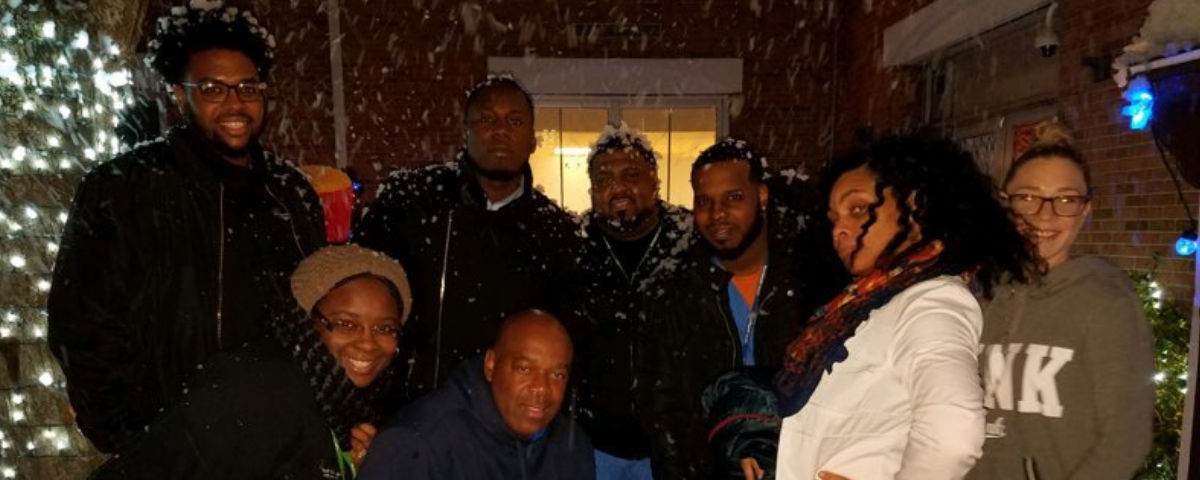
Made for delivering holiday cheer
At Northwell Health, we know how important the holidays are for our patients. We take pride in being able to help our patients, their families, and our employees celebrate all season long across the health system! By delivering holiday cheer, our team members help patients and employees alike get into the spirit of the season.
“The holiday events that we host here at Cohen Children’s Medical Center bring such joy to the children at our hospital,” says Danielle Young, special events and donations coordinator of the Child Life and Creative Arts Therapy Program at CCMC, “These are just a few small ways that we can put a smile on the faces of the patients and brighten their day.”
And it’s not just children who get excited to celebrate! “Creating a holiday light show not only impacts the patients we care for, but also impacts the staff caring for this special population,” says Melissa Anne D’Agostino BSN, RN, Child and Adolescent nurse manager at South Oaks Hospital, “It brought tears to our eyes when an adult patient told us she was so happy to see the light show as she was recently admitted and away from her child for the holiday. Another little boy was using the fake snow to make snow angels and walked around with the snow on his face, telling staff he was Santa. It was an amazing event for all!”
Check out a quick recap and pictures from just some of the amazing events Northwell hosted this holiday season!
Cohen Children’s Medical Center
- Macy’s Santa Visit with AFLAC – December 5th
Macy’s Santa comes with AFLAC and visits with the children, delivering the gift of AFLAC toy ducks. - North Shore High School Holiday Performance – December 21st
North Shore High School comes and does holiday songs in the atrium for patients and families. - Violin performance – December 6th
A group violin performance in the atrium for patients and families. - SISCO Santa Event – December 14th
CCCM turns an office into the North Pole and kids can skype with Santa to let them know what they want for Christmas. Santa also has gifts for each room.
South Oaks Hospital
- Holiday Campus Tree Lighting – December 3rd
Holiday campus tree lighting for employees and their families.
- Winter Wonderland Light Show – December 19th
The courtyard is decorated with lights and blow up decorations for the holidays. Holiday music is played and there is even a snow machine (that both the kids and adults love!) to create snow while patients are served hot cocoa and cookies.
Lenox Hill Hospital
- Annual Employee Children’s Holiday Party – December 14th
Lenox Hill employess are invited to bring their children to this festive event, which features face painting, kiddie rides, seasonal treats and decorations and, of course, a chance to meet Santa Claus. - Annual NICU Reunion Holiday Party – December 14th
Each holiday season, children who spend time in the neo-natal intensive care unit (NICU) are invited to come back to LHH and to spend time with the doctors and nurses as well as other patients who were here during the time they were.
North Shore University Hospital
- Holiday Parade Around 4 Cohen
4 Cohen hosted a Holiday Parade where in collaboration with PT and OT, patients and family paraded around the unit to holiday music - Winter Wonderland Event
The NSUH Winter Wonderland is a multi-session, appreciation event for employees and their children led by NSUH Administration, Human Resources and Engineering Department. The Engineering Department uses their incredible talent and skill to transform the entire Rust Auditorium into an amazing winter-themed display, complete with lighted trees, animated figurines, giant inflatables and fake snow for employees and their families to view the display, take their picture with Santa Claus and enjoy traditional winter treats. Additionally, fun entertainers include therapy dogs, Frosty the Snowman and face painters. - Acapella Music
College students (including a NSUH volunteer) from local Acappella groups come in and sing to help deliver holiday cheer to the patients. - Visit from the Brotherhood from Temple Beth El
For the past 46 years the Brotherhood from Temple Beth El in Great Neck has been coming in to spread cheer at North Shore University Hospital. About 45 members come in and are divided into 3 groups. 2 groups go up on the units and sing for patients, visitors and employees. They are equipped with guitars, bells and tambourines. The other group works with our Rabbi to create 800-1,000 Bikkur Cholim Boxes which are handed out to Jewish patients by volunteers every Friday. - Holiday Gifts from the Auxiliary of North Shore University Hospital
The Auxiliary of North Shore University Hospital pays for holiday gifts to be handed out to every patient in house. The gift is a picture frame which is wrapped in ribbon and has a card attached. It is hand delivered by members of our Auxiliary and also other North Shore University Hospital Volunteers.
Share this entry
Subscribe to our blogs
Stay up to date with stories you want to know more about right to your email inbox.
Newsletter
Subscribe to our blogs
Stay up to date with stories you want to know more about right to your email inbox.
Newsletter
Recent Posts
- Celebrating Black History Month
- Two paths to perfusion: Meet Danielle and Robert
- Explore two different career paths in respiratory care at Northwell Health
- Discover Kelly’s career journey as a nurse manager of perioperative services at Northwell Health’s North Shore University Hospital
- From specialty pharmacist to operations manager: Sherry’s career path at Northwell’s VIVOHealth Pharmacy
Categories
- Academia and Research
- Administrative Support
- Advance Clinical Providers
- Business
- Career Advice
- Career Paths
- Clinical Care
- Clinical Laboratory Science
- Clinical Support
- Culinary and Hospitality
- Culture
- EVS
- Featured Articles
- General Management
- Human Resources
- Imaging
- Inclusion and Belonging
- Information Technology
- Mentorship
- Nursing
- Operations
- Patient and Customer Experience
- Pharmacy
- Rehabilitation Services
- Revenue Cycle
- Social Services
- Students and Internships
- Veterans
- Wellness & Benefits
Archives
- February 2026
- January 2026
- December 2025
- November 2025
- October 2025
- September 2025
- August 2025
- July 2025
- June 2025
- May 2025
- April 2025
- March 2025
- February 2025
- January 2025
- December 2024
- November 2024
- October 2024
- September 2024
- August 2024
- July 2024
- June 2024
- May 2024
- April 2024
- March 2024
- February 2024
- January 2024
- December 2023
- November 2023
- October 2023
- September 2023
- August 2023
- July 2023
- June 2023
- May 2023
- April 2023
- March 2023
- February 2023
- January 2023
- December 2022
- November 2022
- October 2022
- September 2022
- August 2022
- July 2022
- June 2022
- May 2022
- April 2022
- March 2022
- February 2022
- January 2022
- December 2021
- November 2021
- October 2021
- September 2021
- August 2021
- July 2021
- June 2021
- May 2021
- April 2021
- March 2021
- February 2021
- January 2021
- December 2020
- November 2020
- October 2020
- September 2020
- August 2020
- July 2020
- June 2020
- May 2020
- April 2020
- March 2020
- February 2020
- January 2020
- December 2019
- November 2019
- October 2019
- September 2019
- August 2019
- July 2019
- June 2019
- May 2019
- April 2019
- March 2019
- February 2019
- January 2019
Archives
- February 2026
- January 2026
- December 2025
- November 2025
- October 2025
- September 2025
- August 2025
- July 2025
- June 2025
- May 2025
- April 2025
- March 2025
- February 2025
- January 2025
- December 2024
- November 2024
- October 2024
- September 2024
- August 2024
- July 2024
- June 2024
- May 2024
- April 2024
- March 2024
- February 2024
- January 2024
- December 2023
- November 2023
- October 2023
- September 2023
- August 2023
- July 2023
- June 2023
- May 2023
- April 2023
- March 2023
- February 2023
- January 2023
- December 2022
- November 2022
- October 2022
- September 2022
- August 2022
- July 2022
- June 2022
- May 2022
- April 2022
- March 2022
- February 2022
- January 2022
- December 2021
- November 2021
- October 2021
- September 2021
- August 2021
- July 2021
- June 2021
- May 2021
- April 2021
- March 2021
- February 2021
- January 2021
- December 2020
- November 2020
- October 2020
- September 2020
- August 2020
- July 2020
- June 2020
- May 2020
- April 2020
- March 2020
- February 2020
- January 2020
- December 2019
- November 2019
- October 2019
- September 2019
- August 2019
- July 2019
- June 2019
- May 2019
- April 2019
- March 2019
- February 2019
- January 2019
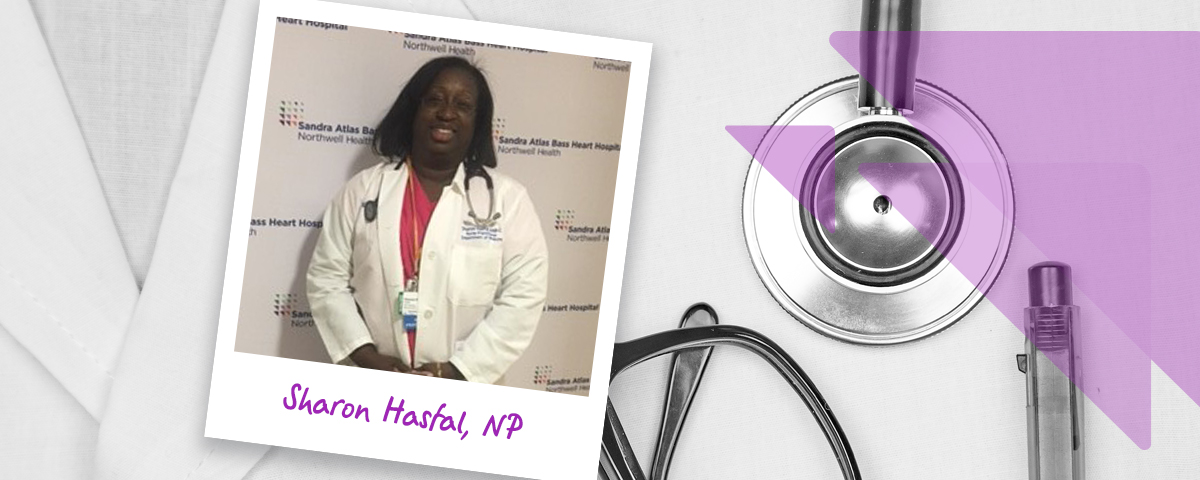
Meet our Truly Compassionate NP Sharon Hasfal
This post is part of a blog series highlighting Northwell Health’s Advanced Clinical Providers (ACP). Each Northwell Health employee was nominated by their manager as an individual that exemplifies a central Northwell Health value. This month, we’re proud to introduce you to Sharon Hasfal DNP, ANP-BC., who is a “Truly Compassionate” member of our team. Here’s why:
It’s hard to find an Advanced Clinical Provider who provides more Truly Compassionate care than Sharon Hasfal. Sharon is a nurse practitioner (NP) in the medicine service line, where she plans and participates in many of the team building/engagement activities that help keep our team working well, together. But Sharon’s compassion goes way beyond the call of duty, and she does so with a humbling grace that shows, no matter the challenge, she’s Made for this.
Sharon was born to be an NP. Blessed with, as she claims, “the gift of gab,” she uses her skill to speak with her patients and takes time to let them know what their plan of care is for the day. She remembers a dedication that struck a chord in her career early on, “a colleague of mine on 3 DSU instilled into her nurses the importance of sitting with your patients and taking the time to speak with them and help them understand what is going on.” This lesson stuck with Sharon.
On her most rewarding day at Northwell Health, she joined the senior case manager and social worker of her hospital and medicine hospitalists to work with patients with an excessive length of stay. As a team, they took the time to speak with patients and their families to learn the ins and outs of what was affecting the patients’ hospitalizations. “I felt I was effective in helping patients make very difficult decisions like advanced directives or arrangements for a safe discharge to home. Good teamwork makes a big difference in providing good care for our patients and working with this team was great.” Speaking of volunteering, Sharon co-chairs every nurse practitioner event that takes place in her hospital. The planning is done on her own time and she usually comes in on her day off to allow herself to fully focus on the success of the celebration. Sharon says, “I enjoy being a nurse practitioner. I believe if you do not enjoy what you are doing you will not be able to be an advocate for your patients and their families.” Her goal is to celebrate nurse practitioners and ensure they have a fun, memorable time- and it’s definitely been accomplished! She’s organized a Hawaiian Luau, a Carnival, a Tea Party, a Beach Party, a Mardi Gras and many more! And that’s just her own hospital. Sharon also serves as the chairperson for the Nurse Practitioner Association of Long Island (NPALI) annual conference, a volunteer position where she organizes a full day educational conference for nurse practitioners throughout Long Island!
Sharon’s compassion is shown in how she cares for people in her workplace, in her community, and in the world. She volunteers for medical missions in underserved countries, using her vacation time and her own money to travel to the needed destination. She does not want or expect anything in return. Her reward is the knowledge that she was able to make a difference in someone’s life. It’s a job she loves. It’s a career she’s Made for. “As an NP I will continue to be true to my patients, their families, along with my peers,” said Sharon. “I will continue to keep my patients informed while they are in the hospital; take the opportunity to educate patients, their families and my colleagues both inpatient and outpatient; and my missionary work. It’s how I can make a difference as an NP.”
Are you Made for working with exceptional Advanced Clinical Providers like Sharon?
![]() Explore your career opportunities at Northwell Health here.
Explore your career opportunities at Northwell Health here.
Share this entry
Subscribe to our blogs
Stay up to date with stories you want to know more about right to your email inbox.
Newsletter
Subscribe to our blogs
Stay up to date with stories you want to know more about right to your email inbox.
Newsletter
Recent Posts
- Celebrating Black History Month
- Two paths to perfusion: Meet Danielle and Robert
- Explore two different career paths in respiratory care at Northwell Health
- Discover Kelly’s career journey as a nurse manager of perioperative services at Northwell Health’s North Shore University Hospital
- From specialty pharmacist to operations manager: Sherry’s career path at Northwell’s VIVOHealth Pharmacy
Categories
- Academia and Research
- Administrative Support
- Advance Clinical Providers
- Business
- Career Advice
- Career Paths
- Clinical Care
- Clinical Laboratory Science
- Clinical Support
- Culinary and Hospitality
- Culture
- EVS
- Featured Articles
- General Management
- Human Resources
- Imaging
- Inclusion and Belonging
- Information Technology
- Mentorship
- Nursing
- Operations
- Patient and Customer Experience
- Pharmacy
- Rehabilitation Services
- Revenue Cycle
- Social Services
- Students and Internships
- Veterans
- Wellness & Benefits
Archives
- February 2026
- January 2026
- December 2025
- November 2025
- October 2025
- September 2025
- August 2025
- July 2025
- June 2025
- May 2025
- April 2025
- March 2025
- February 2025
- January 2025
- December 2024
- November 2024
- October 2024
- September 2024
- August 2024
- July 2024
- June 2024
- May 2024
- April 2024
- March 2024
- February 2024
- January 2024
- December 2023
- November 2023
- October 2023
- September 2023
- August 2023
- July 2023
- June 2023
- May 2023
- April 2023
- March 2023
- February 2023
- January 2023
- December 2022
- November 2022
- October 2022
- September 2022
- August 2022
- July 2022
- June 2022
- May 2022
- April 2022
- March 2022
- February 2022
- January 2022
- December 2021
- November 2021
- October 2021
- September 2021
- August 2021
- July 2021
- June 2021
- May 2021
- April 2021
- March 2021
- February 2021
- January 2021
- December 2020
- November 2020
- October 2020
- September 2020
- August 2020
- July 2020
- June 2020
- May 2020
- April 2020
- March 2020
- February 2020
- January 2020
- December 2019
- November 2019
- October 2019
- September 2019
- August 2019
- July 2019
- June 2019
- May 2019
- April 2019
- March 2019
- February 2019
- January 2019
Archives
- February 2026
- January 2026
- December 2025
- November 2025
- October 2025
- September 2025
- August 2025
- July 2025
- June 2025
- May 2025
- April 2025
- March 2025
- February 2025
- January 2025
- December 2024
- November 2024
- October 2024
- September 2024
- August 2024
- July 2024
- June 2024
- May 2024
- April 2024
- March 2024
- February 2024
- January 2024
- December 2023
- November 2023
- October 2023
- September 2023
- August 2023
- July 2023
- June 2023
- May 2023
- April 2023
- March 2023
- February 2023
- January 2023
- December 2022
- November 2022
- October 2022
- September 2022
- August 2022
- July 2022
- June 2022
- May 2022
- April 2022
- March 2022
- February 2022
- January 2022
- December 2021
- November 2021
- October 2021
- September 2021
- August 2021
- July 2021
- June 2021
- May 2021
- April 2021
- March 2021
- February 2021
- January 2021
- December 2020
- November 2020
- October 2020
- September 2020
- August 2020
- July 2020
- June 2020
- May 2020
- April 2020
- March 2020
- February 2020
- January 2020
- December 2019
- November 2019
- October 2019
- September 2019
- August 2019
- July 2019
- June 2019
- May 2019
- April 2019
- March 2019
- February 2019
- January 2019
Contact us
If you are an individual with a disability requesting an accommodation for the application process, please click the contact us link above to request assistance.
Learn more about our hiring experience.
Read answers to common questions about the application process.
© 2026 - Northwell Health
If you are an individual with a disability requesting an accommodation for the application process, please click the contact us link above to request assistance.
Learn more about our hiring experience.
Read answers to common questions about the application process.
© 2026 - Northwell Health
It is Northwell Health’s policy to provide equal employment opportunity and treat all applicants and employees equally regardless of age, race, creed/religion, color, national origin, immigration status, or citizenship status, military or veteran status, sexual orientation, sex/gender, gender identity, gender expression, height, weight, disability, pregnancy, genetic information or genetic predisposition or carrier status, marital or familial status, partnership status, victim of domestic violence, their or their dependent’s sexual or other reproductive health decisions, or other characteristics protected by applicable law.
Northwell Health reserves the right to amend all terms of employment.


